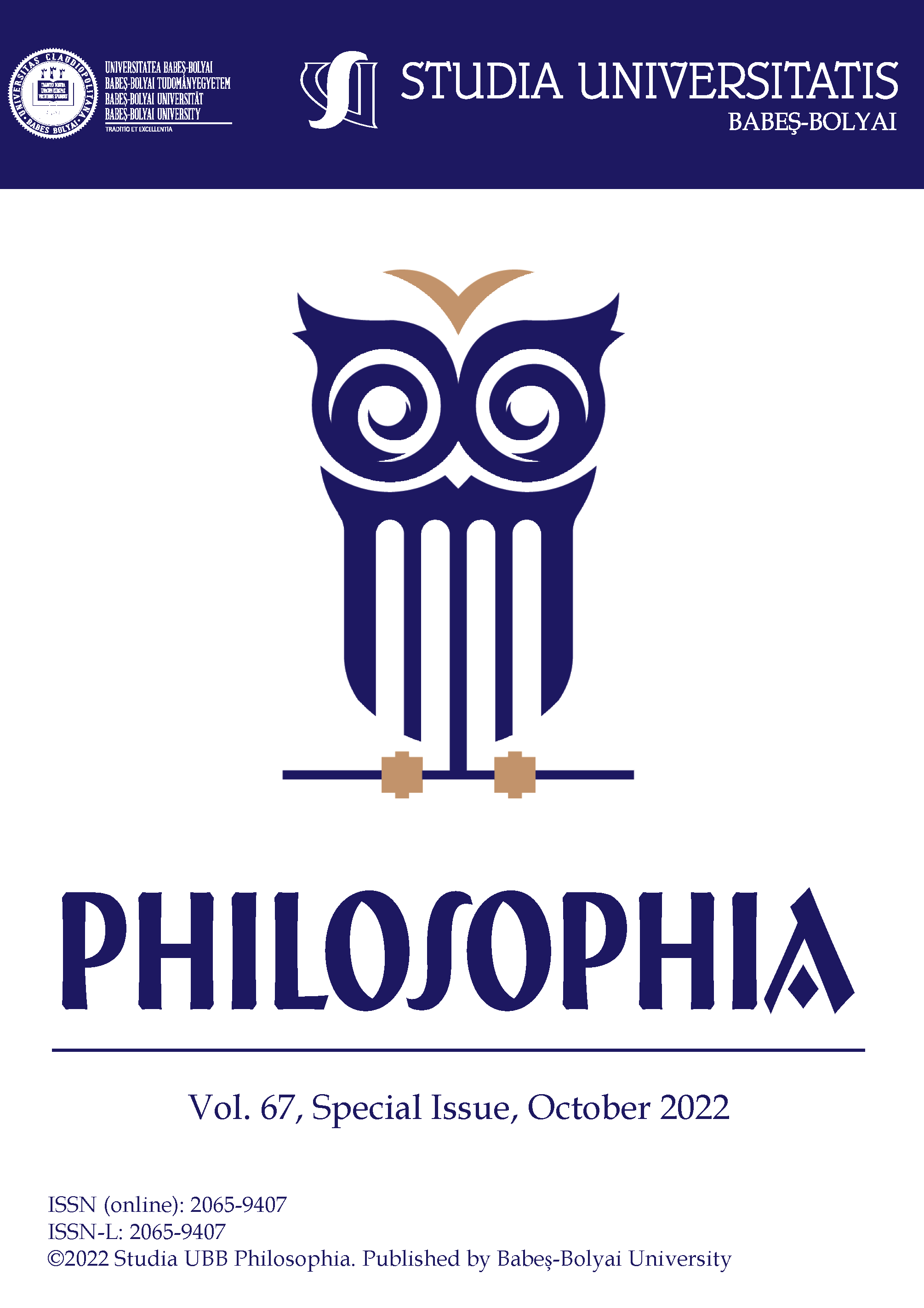HAPPINESS AND MEANING IN IMPRISONMENT: THE IMPORTANCE OF SUFFERING IN THE EXPERIENCES OF NICOLAE STEINHARDT AND VIKTOR FRANKL
DOI:
https://doi.org/10.24193/subbphil.2022.sp.iss.01Keywords:
happiness; meaning of life; suffering; prison; imprisonment; purpose; pain; Nicolae Steinhardt; Viktor FranklAbstract
The paper describes the experiences of Nicolae Steinhardt and Viktor Frankl, both imprisoned despite their innocence, and their discovery of happiness and meaning through suffering and pain. Nicolae Steinhardt was a Romanian political prisoner of the communist regime and Viktor Frankl was a Jew imprisoned in the Auschwitz concentration camp. While in prison, Nicolae Steinhardt is secretly baptized and his life takes a very interesting turn. The discovery of God gives him access to the phenomenon of happiness and as he confesses, in prison he will live the happiest days of his life. Despite the miserable conditions, the pain, and the physical and mental torment, Steinhardt characterizes his happiness as ecstatic, passionate and life-changing. Under similar conditions, Viktor Frankl discovers the importance of suffering in determining the meaning of life. For Frankl, life always holds a potential meaning and if there is a meaning in life at all, then there must be a meaning in suffering. Therefore, through suffering and sorrow, and not in spite of them, Steinhardt and Frankl gain access to happiness and meaning.
References
Barel E., Van Ijzendoorn M. H., Sagi-Schwartz A., Bakermans-Kranenburg M, J., “Surviving the Holocaust: A Meta-Analysis of the Long-Term Sequelae of a Genocide”, Psychological Bulletin, Volume 136, Issue 5, 2010, pp. 677-698.
Bentham, J., An Introduction to the Principles of Morals and Legislation, Batoche Books, Kitchener, 2000.
Brooks S. K., Greenberg N., “Psychological impact of being wrongfully accused of crime offences: A systematic literature review”, Medicine, Science and the Law, Volume 61, Issue 1, 2021, pp. 44-54.
Camus A., „Le Désert”, Noces suivi de L’été, Gallimard, Paris, 1959.
Dragomir A., O teză de doctorat la Dumnezeu. Exerciții de gândire, Humanitas, București, 2016.
Drake D. H., Drake S., Earle R., “Prison Life, Sociology of: Recent Perspetives from the United Kingdom”, in James D. Wright (ed.), International Encyclopedia of the Social & Behavioral Sciences, Second Edition, Volume 18, Elsevier, Amsterdam, 2015, pp. 924-929.
Frankl V. E., Man’s Search for Meaning. An introduction to logotherapy, Beacon Press, USA, 1992.
Husserl, E., Grenzprobleme der Phänomenologie: Analysen des Unbewusstseins und der Instinkte, Metaphysik, Späte Ethik, Husserliana XLII, herausgegeben von Rochus Sowa und Thoms Vongehr, Springer, Dordrecht, 2013.
Levinas E., Entre nous: On Thinking-of-the-Other, translated from the French by Michael B. Smith and Barbara Harshav, Columbia University Press, New York, 1998.
Marcel G., Homo Viator. Introduction to a Metaphysic of Hope, translated by Emma Craufurd, Camelot Press, London, 1951.
Mill J. S., Utilitarianism, Batoche Books, Kitchener, 2001.
Patočka J., Heretical Essays in the Philosophy of History, translated from Czech edition by Erazim Kohák, Open Court, Chicago, 1996.
Ricoeur, P., Oneself as Another, translated by Kethleen Blamey, The University of Chicago Press, Chicago, 1992.
Schopenhauer A., The World as Will and Representation. Volume II, Dover Publications, Inc., New York, 1966.
Schopenhauer A., The World as Will and Representation. Volume III, Project Gutenberg Ebook, London, 1909.
Steinhardt N., Jurnalul fericirii, Editura Mănăstirii Rohia, Rohia, 2005.
Sykes G. M., The society of captives: a study of a maximum security prison, Princeton University Press, Princeton, 1958.
Tatarkiewicz W., Despre fericire, traducere din limba polonă de Constantin Geambașu, Eikon, București, 2019.
Woelfel J., “Viktor Frankl on Freedom and Responsability in the Death Camps: A Critique”, Journal of Social Philosophy, Volume 13, Issue 3, 1982, pp. 16-30.
Yu L., Gambaro M., Komoski M. C., Song M., Song J., Teslik M., Wollner B., Enright R., „The Silent Injustices against Men in Maximum Security Prison and the Need for Forgiveness Therapy: Two Case Studies”, Journal of Forensic Psychology, Volume 3, Issue 2, 2018, pp. 1-5.
Downloads
Published
How to Cite
Issue
Section
License
Copyright (c) 2022 Studia Universitatis Babeș-Bolyai Philosophia

This work is licensed under a Creative Commons Attribution-NonCommercial-NoDerivatives 4.0 International License.





